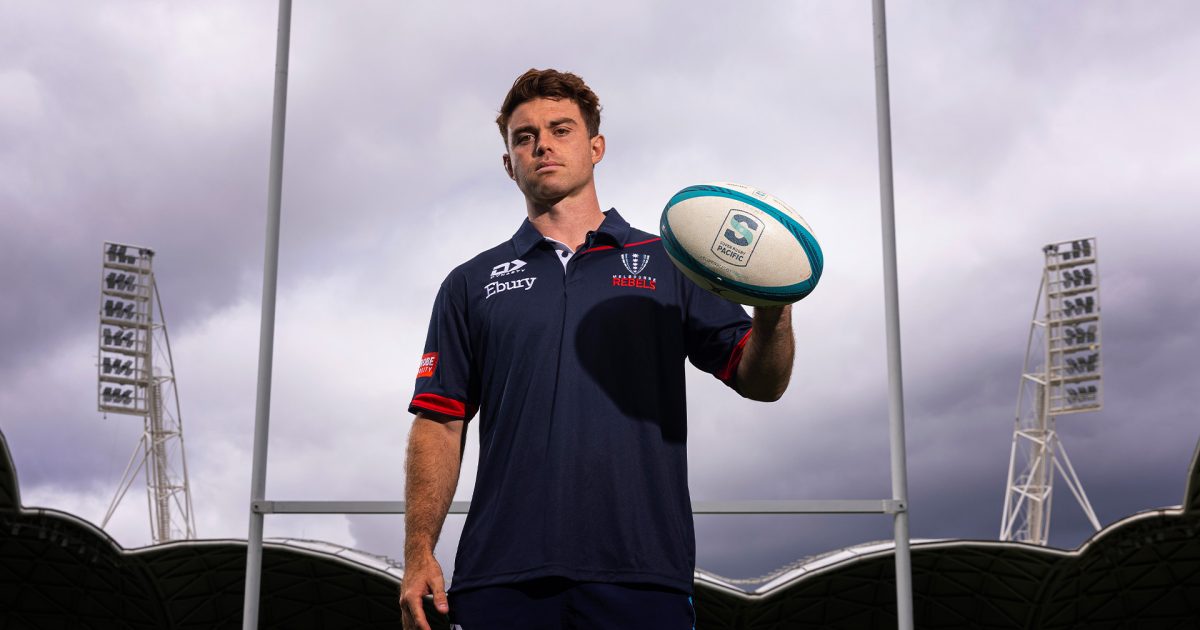Kevin Foote: No risk in changing in-form Kellaway's position

Melbourne coach Kevin Foote feels there’s no downside to shifting Andrew Kellaway from fullback to wing despite him being the Rebels’ best player in the opening two Super Rugby Pacific rounds.
Ahead of their clash with Moana Pasifika in Hamilton in the early Friday night game, Foote has opted to move the Wallabies ace and bring Jake Strachan into the starting line-up.
Kellaway has been on fire in the Rebels’ two games, which have yielded a win and a loss.
He leads the competition for metres gained with 243 and has formed a dangerous combination with five-eighth Carter Gordon.
But Foote felt the proficiency of the 28-year-old on the wing meant it was a no-lose situation.
“I don’t see it as a risk – Kells is a really exceptional finisher,” Foote said.
“He’s always played well on the wing, both for the Wallabies and for the Rebels so Strachan comes in as second ball-player with a really good kicking game.
“There’s no risk; I think it will be good for our flow both in attack and defence.”
Melbourne have named hard-hitting Vaiolini Ekuasi at openside flanker in place of Brad Wilkin, who will undergo surgery on an hamstring injury on Friday.
It’s a blow for popular Wilkin, who led the Rebels last season in the absence of injured skipper Rob Leota, with the 28-year-old expected to be out for sidelined for up to 10 weeks.
Foote said the team was in a “good space” as they look to stop Moana winning successive matches for the first time since joining the competition in 2022.
But he said Moana, under new coach, former All Blacks star Tana Umaga, would provide a stern challenge.
“Moana have been building for a long time … you can see their systems are well in place now and they’re playing more as a team than individuals.
“They’re a good challenge for us.”
Meanwhile, Rugby Australia boss Phil Waugh confirmed he would meet with the former board of the financially-embattled Rebels in a bid to head off legal action.
The club entered voluntary administration last month with debts of over $20 million with their future in the Super competition uncertain.
“We’ve agreed to meet with the former Melbourne Rebels rugby union directors in a without prejudice conversation,” Waugh told reporters in Sydney.
The former board and RA are at a financial impasse with the Rebels directors looking to recover approximately $8 million they claim is owed to the club by the governing body.












































































And this is what foreign coaches do in Australia. As soon as a Wallaby is looking good in one position, they will immediately move him to another position to unsettle him and ensure he can’t become world class.
Robbie Deans did it. Brad Thorn did it. Gibson did it. Rennie did it. Schmidt will do it. It is subtle but deliberate sabotage.